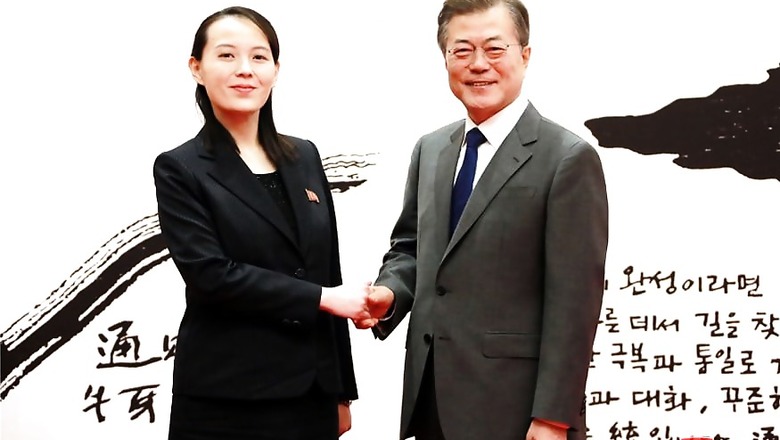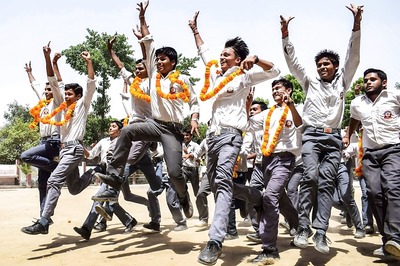
views
Seoul: South Korea spent around 240 million won ($223,237) on the younger sister of North Korean leader Kim Jong Un and her entourage during their three-day visit for the Pyeongchang Winter Olympics, a government official said on Thursday.
The money was mostly spent on accommodation, transport and food for the four members of the delegation and their 18 staff members, an official at South Korea's Ministry of Unification said on condition of anonymity.
Kim's sister Kim Yo Jong and the other North Korean officials stayed at the Walkerhill Hotel, a five-star riverside hotel in eastern Seoul.
She and her delegation travelled between Seoul and the Winter Olympics venue on the eastern coast of South Korea and South Korean officials also hosted meals for them at top hotels, as well as the Blue House, where they met President Moon Jae-in.
The Ministry of Unification spent around 130 million won on accommodation and 50 million won each for transport and food, the official said.
In comparison, the International Olympic Committee paid roughly $50,000 to for the training and preparation of North Korea's 22 Olympic athletes, or about $2,300 each.
That amount is a fraction of the spending on the rest of the poor, heavily sanctioned North's main delegation to the Winter Olympics, which included 229 cheerleaders and a 137-strong orchestra.
This month, the Unification Ministry said it approved a record budget of about $2.6 million to host the 418 North Korean delegates who did not appear in competition - almost $6,200 each.
NO MORE 'KIM JONG UN'
Months before the South hosted the North's delegation, its military contributed to Moon's efforts for detente, dropping the name of the North's leader, Kim Jong Un, from propaganda broadcasts blasted at the border between North and South.
"The decision was made by the South's joint chiefs of staff late last year out of concerns verbal attacks on Kim Jong Un could bring about negative sentiment among North Korean citizens," said an aide at the office of Kim Hack-yong, the head of parliament's national defence committee.
Kim had been briefed by the joint chiefs on the removal of the name, the aide said, seeking anonymity because of the sensitivity of the issue.
Instead of naming Kim Jong Un, the broadcasts have criticised the North's leadership in a more roundabout way, the aide added, with comments such as "Too much money being spent on missile launches is leading to difficulties for the people."
North and South Korea have used large speakers to barrage each other with music, news and propaganda since early 2016, when the South restarted its broadcasts to retaliate for North Korea's fourth nuclear test that January.
North Korea has cut the volume of its loudspeaker broadcasts since the Olympics' opening ceremony on Feb. 9, a South Korean military official stationed at the border said this month.

















Comments
0 comment